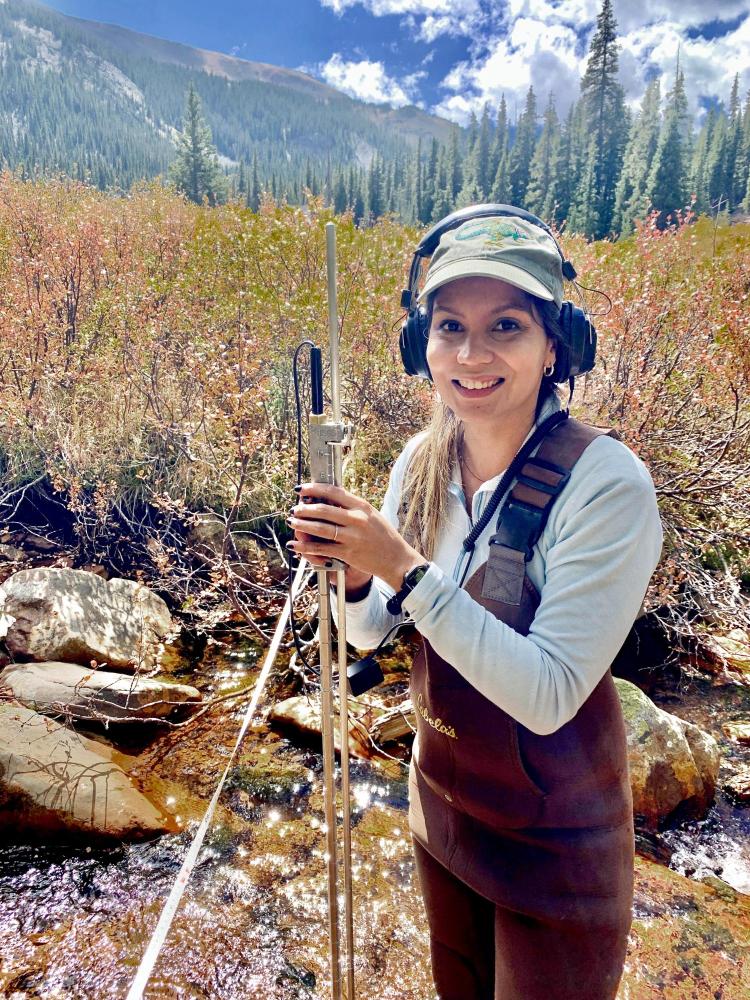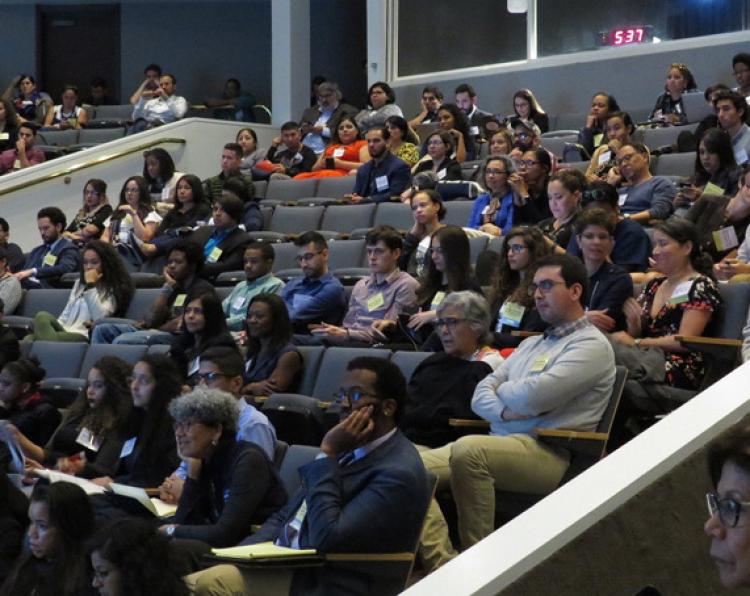Katarena Matos Awarded Ford Foundation Pre-doctoral Fellowship

For decades, the Ford Foundation Fellowship programs have contributed to building a more equitable and diverse U.S. higher education system. One of America’s most prestigious and successful fellowship initiatives, the programs — which have been administered by the National Academies of Sciences, Engineering, and Medicine since 1979 — now have more than 3,500 alumni. They include Juliet García, president of the University of Texas-Brownsville and the first Mexican American woman to lead a U.S. college or university; KT McFarland, former U.S. deputy national security advisor; Condoleezza Rice, former U.S. secretary of state; and Cornel West, civil rights activist and renowned author.
Selected to increase the ethnic and racial diversity of the nation’s college and university faculties, Ford Fellows must demonstrate superior academic achievement and commitment to careers in teaching and research at the college or university level. Each year, the program offers approximately 70 awards for graduate pre-doctoral study — which provide three years of support that can be used over a five-year period — and 36 awards for dissertation research and 20 postdoctoral awards, each of which provides one year of support.
Ford Fellows are students, professors, and administrators. They represent different generations and areas of expertise. They include poets, physicists, sociologists, historians, and biologists. Collectively they form a tight-knit community of scholars and leaders committed to advancing diversity and excellence in education and society.
Ray Gamble, director of the National Academies’ Fellowship Office, who has worked with these fellowship programs for almost 20 years, noted that there is intense competition for these awards, with an acceptance rate for applicants between 3 and 5 percent.
“The National Academies’ partnership with the Ford Foundation Fellowship programs has been an ideal fit, working hand in hand to foster scholarship, academic excellence, and broad participation,” Gamble said. “This is very much in line with the Academies’ mission to advance understanding of critical issues and facilitate dialogue across disciplines.”
In addition to financial support, current fellows attend an annual conference that engages them in academic dialogue and exchange of ideas and supports professional development through discussions on topics such as navigating academia, current social issues and concerns, writing successful grants, and scholarly publication.
“So many of the fellows say they wouldn’t have been able to complete their degrees or their research without the fellowship support,” said Connie McNeely, a two-time Ford Fellow and professor of public policy and co-director of the Center for Science, Technology, and Innovation Policy at George Mason University. “The value added is real, not just for academia but for society. Building this diverse network of scholars and increasing excellence in the professoriate and beyond have led to a strong and valued community. It is transformational.”
Jonathan Lorenzo Yorba, a national leader in philanthropy, received a pre-doctoral fellowship in 1991 while studying comparative ethnic studies at the University of California at Berkeley.
“Being a Ford Fellow helped me become who I am. Without the fellowship, I would not have had the opportunity to matriculate, study, undertake research, travel the world, and have such a varied and rich career in and outside of academia,” Yorba noted. “The scholarly training I received helped me learn to think critically and to look at, celebrate, and honor the diversity of the world, its people, and their remarkable histories and current realities. I was exposed to inter-disciplinary and trans-disciplinary ideas. Being a fellow prepared me for all kinds of interactions and public presentations. As a result, I am comfortable and enjoy speaking with anybody — whether they are a farm worker, a member of the U.S. Congress, or in meetings at the White House.”
Yorba is the chair of the Ford Fellows Fund, which was started in 1994 by Ford Fellows, and raises funds from fellows to support additional awards. The funds raised are matched by the Ford Foundation. Yorba is also the founding board treasurer of the Society of Senior Ford Fellows.

“What was indispensable to me was the type of fellowship that was created by being a part of this academic group,” said Knight. He noted that some of his greatest supporters were fellows who provided instrumental support and advice. Ford Fellows often collaborate with each other, and Knight’s many works include two books co-authored with other Ford Fellows.
“The Ford Fellowship is inherently diverse. There is an academic diversity as well as disciplinary diversity that is very valuable, and provides the fellows with multifaceted feedback,” Knight added. “There is also an intergenerational diversity. Whether you are a senior fellow or a pre-doctoral fellow, you are treated the same and your voice is listened to with the same seriousness.”
Four years ago, Ford Foundation Senior Fellowship awards were established to further engage previous Ford Fellows in the work of the foundation and to support innovative research that addresses the overall goals and mission of the Ford Foundation.
“Once you are a Ford Fellow, you are always a fellow,” Gamble said. “The alumni group has evolved and continues to move the mission forward to build a community of scholars and leaders.”
McNeely added, “There is still so much to do. The fellowship has prepared and given the fellows support to make transformative changes and advance careers. This growing network of high achievers and believers hopefully will make a difference working with their own students to change things in their institutions and ultimately in society.”

